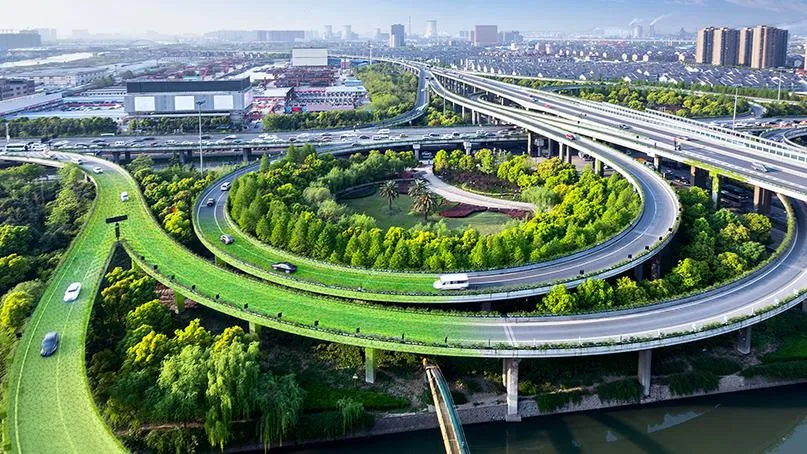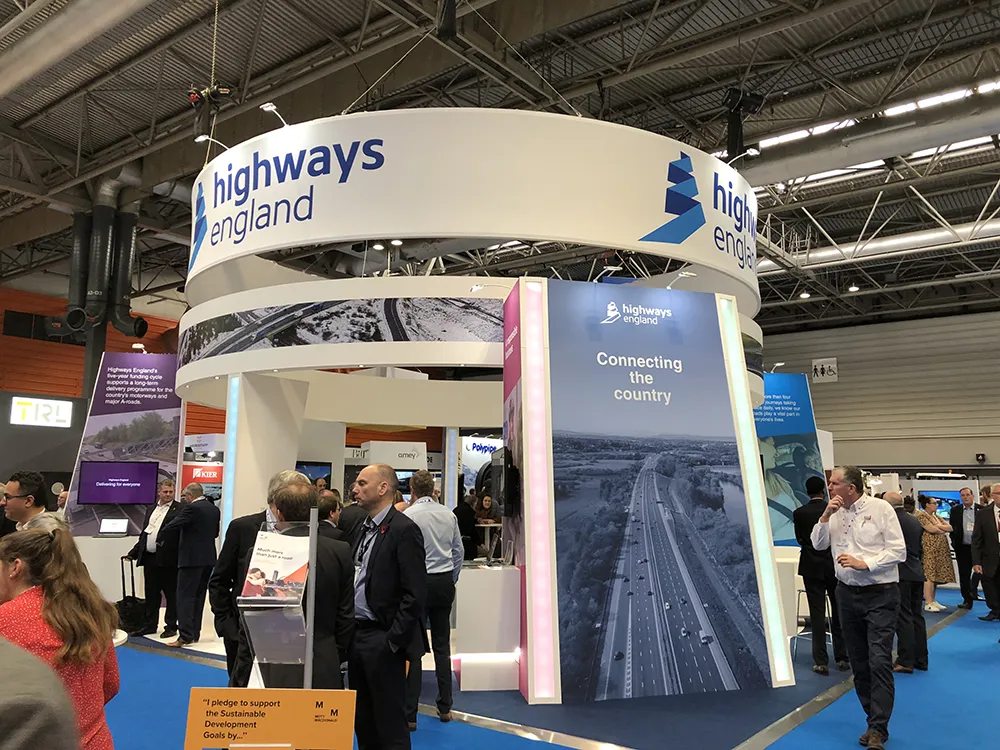
These resin products with a honeycomb structure offer increased strength and elasticity needed to withstand an impact from a vehicle at high speeds, according to the company.
Importantly, the company says that the fluorescent material enables the guardrail to be seen in the dark under low lighting conditions, thereby increasing safety for drivers.
From the aesthetic point of view, the material does not change colour after prolonged exposure to the sun’s ultraviolet rays.
Similar technology has been applied to noise barrier design, the company says. The rib-like structure within the walls enables sounds to be absorbed without requiring any additional materials. Also, the extrusion manufacturing process for the walls forms layers and spaces within the wall that enhances its ability to efficiently absorb sound.
Being a non-metal product, the synthetic wall is anticorrosive. To maintain ecological credentials, the company says that the walls do not incorporate glass wool, unlike many similar products made by other companies.







